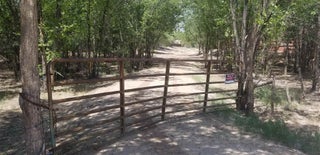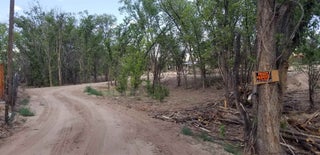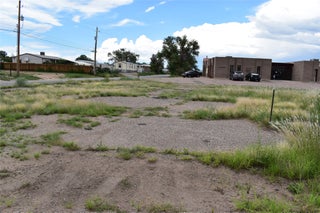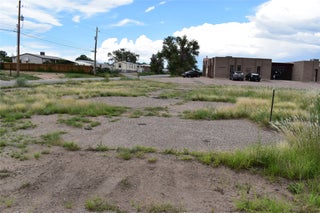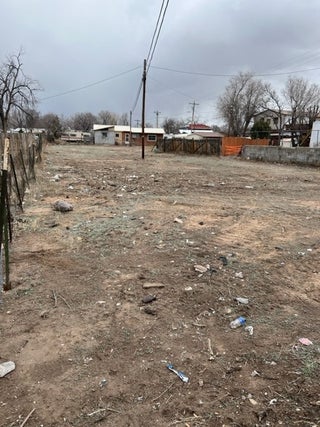
Homes & Land for Sale
Pojoaque, Nambé and Española
Browse
Neighborhoods
- Northeast Santa Fe
- Southeast Santa Fe
- Northwest Santa Fe
- Southwest Santa Fe
- Agua Fria Village
- Aldea
- Along the SANTA FE TRAIL
- Bishop’s Lodge & Circle Dr
- CANYON ROAD
- Casa Alegre
- Casa Solana
- Downtown Santa Fe
- ELDORADO
- HIGHWAY 285
- Historic EASTSIDE
- La Tierra
- Las Campanas
- Monte Sereno
- Nava Ade
- Northeast Land
- Northwest Land
- Northeast MOUNTAIN VIEWS
- Old Las Vegas HWY
- Rancho Viejo
- SOUTH CAPITOL & Railyard
- Southeast LAND
- Southwest Commercial
- Southwest Homes
- Southwest Land
- Tano Rd & Los Dos
- Tesuque
- Tierra Contenta
- Zocalo
- North of Santa Fe
- South of Santa Fe
- Abiquiu
- Albuquerque Sotheby’s
- Cochiti & Peña Blanca
- Far South Santa Fe
- Galisteo & Lamy
- Glorieta, Pecos & Rowe
- La Cienega & La Cieneguilla
- LOS ALAMOS & JEMEZ SPRINGS
- Madrid & CERRILLOS
- North of Santa Fe Homes
- North of Santa Fe Land
- Pojoaque, Nambé and Española
- South of Santa Fe Homes
- South of Santa Fe Land
- Taos & Taos Ski Valley
- The High Road to Taos
- Turquoise Trail
Homes & Land for Sale in Pojoaque, Nambé and Española
About Pojoaque, Nambé and Española
Pojoaque, Nambé and Española offer affordable homes with a rural feel and an easy commute to Los Alamos and Santa Fe.
POJOAQUE
Pojoaque, which translates in Tewa to “water gathering place”, is collection of communities near the pueblo with people from various ethnic backgrounds. The area of Pojoaque includes the neighborhoods of Cuyamungue, Jacona, Jaconita, Nambé and El Rancho. Pojoaque Pueblo is a neighboring community.
In the early 17th century, the first Spanish mission, San Francisco de Pojoaque was founded. During the Pueblo Revolt of 1680, Pojoaque was abandoned, and was not resettled until circa 1706. By 1712, the population had reached 79. During the revolt of 1837, New Mexico native Manuel Armijo defeated the rebels at Puertocito Pojoaque, east of Santa Cruz de la Cañada. In the early 1900s, the Pojoaque Valley School District was established to serve the educational needs of the valley.
Pojoaque Pueblo is one of the six Tewa-speaking Rio Grande Pueblos, and a member of the Eight Northern Pueblos. The Pueblo was settled around 500 AD, with the population peaking in the 15th and 16th centuries.
In about 1900, a severe smallpox epidemic caused the pueblo to be abandoned once again by 1912. In 1934, Pojoaque Pueblo was reoccupied, and became a federally recognized Indian Reservation in 1936.
Pojoaque Pueblo remains a major employer in the region, owning several business enterprises, including the gaming operations of three casino locations: Buffalo Thunder Resort, Cities of Gold Casino, and Jake’s Casino. Prior to 2017, the New Mexico state gaming compacts signed by the pueblo expired, but the pueblo has continued gaming operations and resumed negotiations with the state of New Mexico.
Pojoaque Pueblo opened the Poeh Museum in 1987, and the Cities of Gold Casino in the mid-1990s. In 2008, the Pueblo opened the Buffalo Thunder resort and casino, New Mexico’s largest resort.
The Pojoaque Valley is served by the Pojoaque Valley School District, which administers several schools, teaching Kindergarten through twelfth grade:
Pojoaque Valley High School
Pojoaque Middle School
Pojoaque Sixth Grade Academy
Pojoaque Intermediate School
Pablo Roybal Elementary School
Pojoaque Valley High School competes in the NMAA District 2AAAA in athletics.
NAMBÉ
Nambé is the Spanish version of a similar-sounding Tewa word, which can be interpreted loosely as meaning “rounded earth.”
Scholars believe that all Pueblo peoples are descended from the Ancestral Pueblo people, possibly from the Mogollón, and other ancient peoples. In contemporary times, the people and their archaeological culture were referred to as Anasazi for historical purposes – a Navajo term loosely translated as “Enemy Ancestors” as some Navajo clans are descendants of the Anasazi. Contemporary Puebloans do not want this term to be used. As the Ancestral Puebloans abandoned their canyon homeland due to social upheaval and climate change, they migrated to other areas. Eventually the Nambé emerged as a culture in their new homeland in present-day New Mexico.
The Spanish conquistador Juan de Oñate arrived with armed forces in the area in 1598. He forced Nambé Pueblo, as was the case with other pueblos, to start paying him taxes with cotton, crops and labor. Catholic missionaries also came into the area, threatening native religious beliefs. They renamed pueblos with saints’ names, and the first church was built in Nambé Pueblo in the early 1600s. The Spanish introduced new foods to the native communities, including peaches, peppers, and wheat. In 1620 a royal decree assigned civil offices to each Pueblo.
The people of Nambé Pueblo participate in a mixed economy, with many travelling to jobs outside of the Pueblo lands.
Prior to 2020, the Nambé Pueblo operated a casino on tribal land at the Nambé Falls Travel Center. In 2021, Tesla opened a 7,000 sq ft (650 m2) service center on Nambé land to service Tesla vehicles, after signing an agreement with Nambé Pueblo leaders. This allowed the first service center to open in the State of New Mexico since state law prohibits automakers from selling direct to consumers, as Tesla does, and state law did not allow Tesla to open a service center without selling cars through intermediary car dealers. By November 2022, Tesla had followed this model of leasing native American land for a service and delivery center at a second New Mexico city – Santa Ana – which is 60 mi (97 km) closer to the large city of Albuquerque. The store is expected to open in May 2023 and will be five times larger than the first New Mexico facility in Nambe.
The Nambé Pueblo is zoned into Pojoaque Valley Schools. Pojoaque Valley High School is the zoned comprehensive high school.
ESPAÑOLA
The Los Alamos National Laboratory is the largest employer in Española; it accounts for over 12% employment of residents. The education sector is the second largest employer, the Española Public Schools is the 16th largest school district in New Mexico. Recently, Northern New Mexico College has expanded its degree programs and made massive improvements to its campus, adding a new library and a new School of Education. Larger local businesses include Akal Securities Inc, a security company that employees over 500 people.
Española has seen much commercial development on Riverside Drive, the city’s secondary main road. Retail and eatery chains such as Lowe’s, Chili’s and GameStop are anchors of a massive shopping square located next to Wal-Mart which came into the city in 1999. CVS/Pharmacy and Petsense also added locations in Española.
The fountain at Plaza de Española was designed as a replica of the Alhambra. The plaza is home to the Convent Mission, administered by the Episcopal Church.
Satview Broadband, headquartered in Reno, is the local cable television company. Due to a legal dispute with Jemez Mountains Electric Cooperative, Satview Broadband has suspended services in Española as of March 2016. The city is served by several satellite TV services and is served by Windstream Communications for telecom and broadband service.
Española’s restaurants and convenience stores are popular with travelers between Santa Fe and northern communities, as well as with local people. The local fiestas are held in the summer to commemorate the Spanish colonization and introduction of Christian faith to the area. The fiestas include live New Mexico and/or country music, vendors and parades.
There are many locations near Española that provide for outdoor activity such as hiking, biking, and river sports like rafting and kayaking. Nearby winter sports include skiing (downhill and cross-country) and snowboarding.
ESPAÑOLA PUBLIC SCHOOLS
Española Valley High School
The City of Española is a part of the Española Public Schools district, with six of its 14 schools being located within the city.
Secondary schools:
Española Valley High School
Carlos F. Vigil Middle School
Elementary schools:
Eutimio Tim Salazar III “Fairview” Elementary
James H. Rodriguez “Española” Elementary
Tony E. Quintana “Sombrillo” Elementary
Kindergartens:
Los Niños Kindergarten Center
Charter schools:
McCurdy Charter School K-12
La Tierra Montesori School of the Arts and Sciences
Carinos de los Ninos Charter School
Private schools:
Holy Cross Catholic School (Roman Catholic Archdiocese of Santa Fe)
Victory Faith Christian Academy
College: Northern New Mexico College
Library: Española Public Library is located inside the Richard Lucero Center at 313 North Paseo De Oñate. Its collection is about 50,000 items.
Founded as a railroad village some distance from the old Indian town of San Juan de los Caballeros (now renamed Ohkay Owingeh), Española was officially incorporated in 1925. It has been called the first capital city in the United States.
Española was referred to as La Vega de los Vigiles (‘the Vigils’ Meadow’) before the presence of railroads. La Española means ‘Spanish woman’, and folk history attributes the name to railroad construction workers who named the area after a woman who worked in a small restaurant in the area. In fact the name is a shortened form of Plaza Española (‘Spanish town’), which likely was to differentiate it from the Tewa pueblo just to the south.
Tewa people have lived in the area since the 13th century. They built towns in the area, now called ‘pueblos’, four of which still exist: Ohkay Owingeh, Pojoaque, Santa Clara and San Ildefonso.
The upper reaches of the Rio Grande region was explored by the Spanish in 1540. Don Juan de Oñate was the first to bring settlers here in 1598. His group stayed at Ohkay Owingeh for a time (calling the Tewa town San Juan de los Caballeros), before settling in an abandoned Tewa village which he renamed San Gabriel. San Gabriel, close to modern Española, can thus be seen as the first capital city founded by people of European racial descent in what is now the United States.
Oñate arrived in the Española area on July 11, 1598, at the confluence of the Chama River and the Rio Grande, where he established a camp at a place then called Yunque-Yunque.
Almost a century later, near the same region, Don Diego de Vargas established his villa at Santa Cruz.
Prior to the arrival from Antonito, Colorado of the narrow gauge Denver and Rio Grande Railroad in 1880, the hamlet on the west-side of the Rio Grande was known as La Vega de los Vigiles in reference to the Vigil family who initially settled that area. The earliest document found indicates that La Vegas de los Vigiles had been populated by 1751, over 100 years before the railroad’s arrival. With the coming of the railroad the name of the hamlet was changed to Española. Until 1886, when it was extended to Santa Fe, Española was the terminus of the line. The Española station included an engine facility along with a roundhouse and turntable so it could service the locomotives. The facilities were built but torn down or no longer in use after six years; plans for the town had changed. Later popularly known as the “Chili Line”, this was part of an ambitious but unsuccessful proposal to connect Denver with Mexico City.
The route extended into what today is the downtown Española area, and the railroad began selling lots in the area. Anglo merchants, mountain men, and settlers slowly filtered into Española. Frank Bond and his brother George, who were Canadian emigrants, would later arrive in the city. Together they established the state’s largest mercantile and a multi–million dollar wool empire. With them came economic growth and prominence. Española was the headquarters for all the Bond family interests which included over 12 businesses across New Mexico.
Frank R. Frankenburger, a business man born in Fort Scott, Kansas, was the first “elected” mayor; he was elected in 1923. The first mayor who was chosen in “popularity” was Frank Bond, in 1907. In 1925 Española was incorporated as a city. As the population rose, there was a high demand for public education in the city. Española High School was established; it would be the largest school in the area for decades. The first high school in the area, however, was Santa Cruz High School. Two miles away from downtown Española, it opened in 1906 in the historic Santa Cruz area. Neither high school operates after a merger of school districts in 1975.
Homes & Land for Sale in Pojoaque, Nambé and Española



























